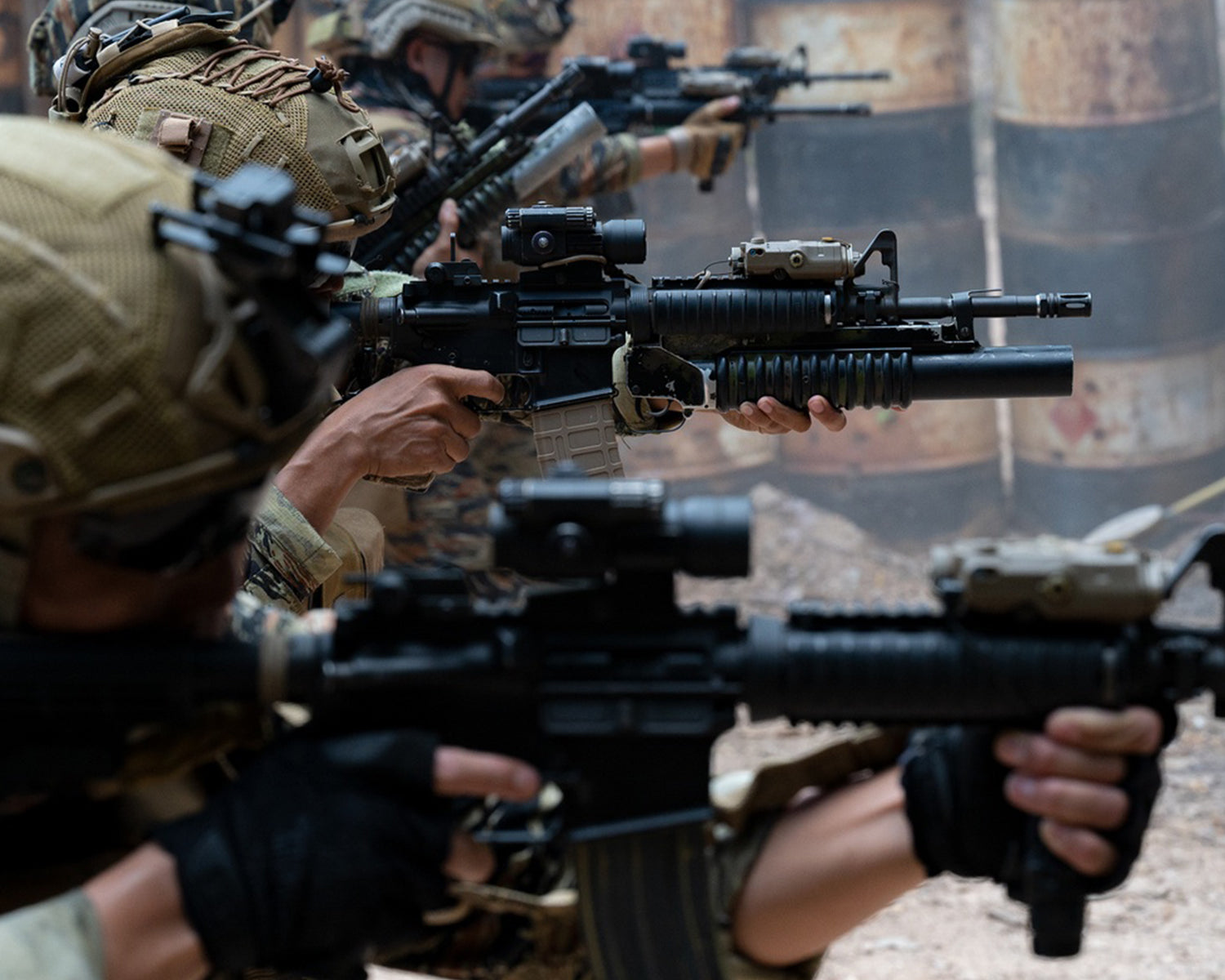
Asian countries boost arms purchases, military research as security outlook darkens
PHOTO CAPTION: Illustrative photo — Philippine sailors assigned to Naval Special Operations Units shoot at targets alongside U.S. Naval Special Warfare operators during live fire weapons training in Palawan, Philippines, during Balikatan 23, April 21, 2023. (U.S. Navy Photo by Mass Communication Specialist 1st Class Daniel Gaither via U.S. Defense Visual Information Distribution Service)
By Greg Torode and Jun Yuan Yong
HONG KONG - Spending on weapons and research is spiking among some Asian countries as they respond to a darkening security outlook by broadening their outside industrial partnerships while trying to boost their own defence industries, a new study has found.
The annual Asia-Pacific Regional Security Assessment released on Wednesday by the London-based International Institute for Strategic Studies (IISS) said outside industrial help remains vital even as regional nations ultimately aim for self-reliance.
"Recent conflicts in Ukraine and the Middle East, coupled with worsening U.S.-China strategic competition and deterioration of the Asia-Pacific security landscape, may lead to a rising tide of defence-industrial partnerships," it read.
"Competitive security dynamics over simmering flashpoints ... feed into the need to develop military capabilities to address them."
Spending on defence procurement and research and development rose $2.7 billion between 2022 and 2024, it showed, to reach $10.5 billion among Southeast Asia's key nations of Indonesia, Malaysia, the Philippines, Singapore, Thailand and Vietnam.
The spike comes even as the nations spent an average of 1.5% of GDP on defence in 2024, a figure that has kept relatively constant over the last decade.
The study, released ahead of this weekend's annual Shangri-La Dialogue defence meeting in Singapore, said Asia-Pacific nations still rely on imports for most key weapons and equipment.
Such items range from submarines and combat aircraft to drones, missiles and advanced electronics for surveillance and intelligence gathering.
The informal Singapore gathering of global defence and military officials is expected to be dominated by uncertainties stemming from the protracted Ukraine conflict, Trump administration security policies and regional tension over Taiwan and the disputed busy waterway of the South China Sea.
Saudi Arabia and the United Arab Emirates are increasingly active and making inroads, the study said, though European companies have a prominent and expanding regional presence, via technology transfer, joint ventures and licenced assembly deals.
The UAE now operates a diversified network of collaborators, such as China's NORINCO weapons giant and rival India's Hindustan Aeronautics.
Joint development operations are not always easy, the study said, offering lessons from India's two-decade collaboration with Russia to produce the BrahMos supersonic anti-ship missile.
While the feared weapon is fielded by India, exports have been hampered by lack of a clear strategy, with deliveries to its first third-party customer, the Philippines, starting only in 2024, the study added.
Closer Russia-China ties could further complicate the weapon's development, particularly if Moscow chooses to prioritise ties with Beijing to develop a hypersonic version of the missile.
(Reporting by Greg Torode in Hong Kong and Yong Jun Yuan in Singapore; Editing by Clarence Fernandez)











